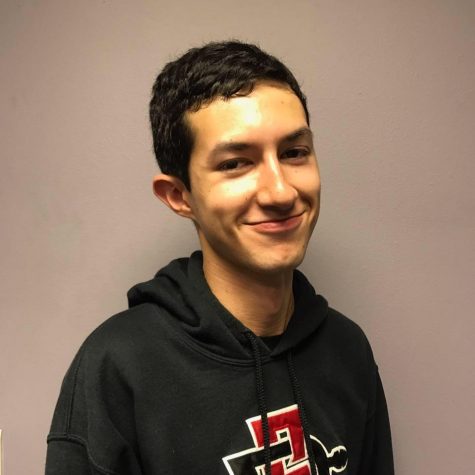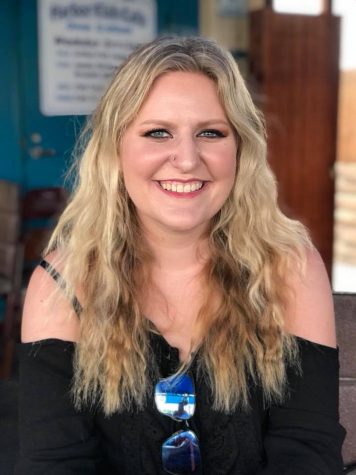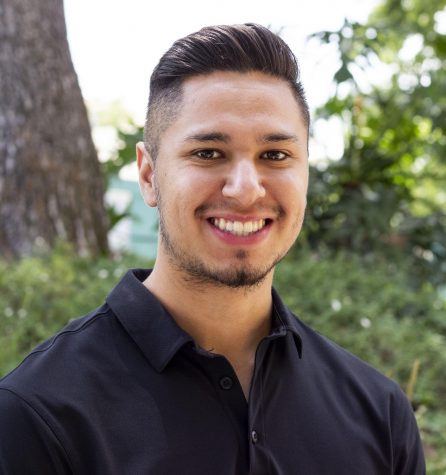Most of the graduating seniors on The Daily Aztec’s editorial board are students in JMS. We know the territory. We know what’s taught in these classes.
There are many things we love about JMS. But we have to be honest — our classes are not doing enough.
Many of us have been in JMS classes for the last four or five years. And most of us agree that in those years, just one or two of our JMS classes have actually been useful.
This isn’t a letter to bash on the school of JMS. Rather, we feel like we have been ignored when we have continuously expressed our concerns. We want something done for the current and future JMS students of SDSU.
We have heard the complaints from numerous students, and we know you have, too. We have heard it from students still in the major, students who are currently graduating and alumni. They’re all similar, so why is it that years later, nothing has changed?
So, before the year comes to an end, we will voice these concerns once again.
If it wasn’t for this newspaper and our internships, we would definitely not feel prepared to go out into the real world. Nor would we have acquired the skills necessary to be journalists today, when it is necessary to know not just AP Style, but how to report on breaking news, edit video and tell stories through more than just writing.
We have learned this through countless hours in our newsroom. We have built a video section from the ground up, where one person took on the responsibility of teaching students how to create 1 minute 30 second video news packages.
Yes, we have a broadcast class. But it’s only one class — one that we are not allowed to take it until we are at least juniors — and it fills up pretty quickly.
There are plenty of successful reporters who have graduated from SDSU’s JMS program. But they’re learning the skills they need for their careers elsewhere, whether that’s at The Daily Aztec or some other news organization. Several alumni reporters have said they had to take supplemental broadcast classes at community colleges after graduating.
The average JMS graduate is simply not prepared to go out into the real world. That has to change.
Then there’s the GSP. The Grammar, Spelling and Punctuation test students must take to get into any JMS major.
It’s dreaded by many students because they’ve heard countless stories of “failing” it multiple times or missing the cut by just two points. In fact, between 81 and 89 percent of students who have taken the GSP since 2013 have failed it. What does it say about the JMS program that most students educated in its classes can’t pass a test that’s mandatory to moving forward in their major? What are students learning, exactly?
Beyond that, what is the virtue of placing so much importance on this test? Even the best of writers still have to look words up. What if you’re looking to be a journalist in Spanish media? Because of a test, are you going to take the opportunity of being able to get a journalism degree from students? Sure, students can still petition their way into their majors, but not everyone is successful.
And there’s more.
This year, our group of editors was the most diverse since we have been part of this newspaper. Our editor in chief and managing editor are both Latino. Our assistant news editor is Latino. Our opinion editor is black. Our assistant sports editor is Filipino. Our video editor is North African and Muslim. And that doesn’t even include the dozens of volunteer writers, videographers and photographers on our staff.
As an editorial board made up of JMS students, we expect you to represent us. The lack of diversity within the faculty of this school has led to a lack of understanding between students and faculty, and this will continue to happen if nothing is changed.
There are some bright spots.
Dr. Nate, thank you. You have gone out of your way to have conversations with many of us, and several of us would consider you a mentor. You’ve always been honest and treated us like real adults. You are truly here for the students.
Dana Littlefield, thank you for teaching us what it’s like to be a journalist in the real world and for participating in panels that highlighted the need to have more diversity in newsrooms.
Professor Schmitz Weiss, thank you for pushing us when it came to our stories. You didn’t let us give up; you pushed us to be better.
There are more professors who we are surely failing to mention. But the fact remains that there are problems with the JMS program that urgently need correcting. As much as we appreciate every member of our JMS faculty, we would be remiss if we did not address them.














